Death Records | Obituary Searches | The LDS Family History Library
 The Family History Library, located at the Church of Jesus Christ of Latter Day Saints (often referred to as the LDS) houses the largest collection of genealogical information in the world. Originally founded in 1894 by the Genealogical Society of Utah, the library is committed to recording on microfilm all public record data such as births, deaths, marriages, deeds and wills.
The Family History Library, located at the Church of Jesus Christ of Latter Day Saints (often referred to as the LDS) houses the largest collection of genealogical information in the world. Originally founded in 1894 by the Genealogical Society of Utah, the library is committed to recording on microfilm all public record data such as births, deaths, marriages, deeds and wills.
The web site
You can visit the web site of the Family History Library to get information about the library’s location and its history. You will find that this website has one of the richest sets of online sources available, and can be very helpful in preparing for your search.
Preparing for your visit
By clicking the “library” tab at the top of their web page, you can locate directions to the library, information about hotel accommodations, and a layout of the library records.
The library is located at 35 North West Temple Street, Salt Lake City, Utah, United States. It will probably require a bit of planning to travel there, so set a date for yourself (even if it’s a year or more away) and start saving your pennies.
Note the library’s hours. With the exception of Sundays and seven other days each year, the library is open from 7:30 a.m. to 6 p.m. on Mondays and from 7:30 a.m. to 10 p.m. Tuesday through Saturday.
The library is 142,000 square feet and covers 5 floors. You’ll want to plan ahead.
LDS orientation
Upon entering the library, stop by the orientation center. You will want to attend the orientation session to become familiar with this sizable library. Four of the five floors are open to the public. Make sure you get a guidebook, which can help you use almost every system in the library.
You might want to check out the schedule of the various classes that are available throughout the day. Look for any classes focused on death records and how to manage obituary searches. These classes are free and given by volunteers and staff members to aid in your use of the databases and resource information. Plan your day around the classes. Like the orientation, these classes are extremely valuable.
Doing death record research and obituary searches
Take advantage of the more than 70 computer research terminals available at the library. Use a stand-up computer for quick searches. (Use is limited to about 15 minutes; utilize a sit-down computer for up to one hour.) If they’re all full, you’ll find more computers one block away in the Joseph Smith Memorial Building. The computers there also have access to the library indexes and are recommended for beginners.
You can check out up to five films or five books at a time. Don’t forget that these are available for use in the library only. Don’t let yourself get stuck for too long. Your visit is too costly and valuable to waste being lost. Don’t forget there are assistants there to help patrons learn how to search, but not to find the information for you.
Print out information from a computer costs about a nickel per page, and photocopies are about the same price. You can also get microfiche printouts for about 20 cents a page. If you want, you can also download data onto your own disks or purchase disks from the library. (Be prepared to wait in line to make copies.)
You’ll want to plan to spend at least half a day getting oriented and another two days on research. Keep in mind that research can be quite exhausting. Plan ahead by creating a schedule for yourself. The LDS Family History Library is the single best source of death records under one roof. Their resources for obituary searches are bar none.
…
Know What Your Doing?
Blank Family Tree with Step-by-Step Instructions
…
National Archives Celebrates Black History Month in February
February 15, 2008 by Chris
Filed under Articles, Latest News, Public Records
 The National Archives will be celebrating Black History Month in February with special films, lectures and public programs. These events will be at the National Archives Building in Washington, DC, and are open to the public. Some programs will also be held at the National Archives in College Park, Maryland. Unless otherwise noted all events are free.
The National Archives will be celebrating Black History Month in February with special films, lectures and public programs. These events will be at the National Archives Building in Washington, DC, and are open to the public. Some programs will also be held at the National Archives in College Park, Maryland. Unless otherwise noted all events are free.
- Panel Discussion and Banneker Monument Unveiling, February 15, at 7 P.M
- What’s New in the ARC (Archival Research Catalog)? February 20, at 11:30 A.M.
- Using Federal Records for African American Genealogical Research, February 23, 10:15 A.M.-1:30 P.M.
On Tuesdays and Fridays throughout February, the National Archives will be showing the landmark 14-part PBS series Eyes on the Prize. For the complete film schedule, as well as more information on other events taking place, please visit: http://www.archives.gov/press/press-releases/2008/nr08-42.html.
…
Where to Next?
Blank Family Tree with Step-by-Step Instructions
…
National Archives Marks World War I Veteran’s 107th Birthday
February 15, 2008 by Chris
Filed under Articles, Latest News, Public Records
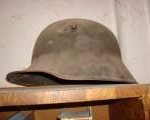 Archivists present last living American WWI veteran with a copy of his military file. WASHINGTON, DC* The National Archives celebrated the 107th birthday of the nation’s last living World War I veteran, Mr. Frank Woodruff Buckles, this week. To honor Mr. Buckles — and by extension all of the men and women who served — National Archives archivists Mitch Yockelson and Richard Boylan visited with Mr. Buckles at his home in West Virginia and presented him with a copy of his military service record.
Archivists present last living American WWI veteran with a copy of his military file. WASHINGTON, DC* The National Archives celebrated the 107th birthday of the nation’s last living World War I veteran, Mr. Frank Woodruff Buckles, this week. To honor Mr. Buckles — and by extension all of the men and women who served — National Archives archivists Mitch Yockelson and Richard Boylan visited with Mr. Buckles at his home in West Virginia and presented him with a copy of his military service record.
Frank Woodruff Buckles was born in Harrison County, Missouri, on February 1, 1901. He enlisted in the US Army in 1917, at the age of 16 (he said he was 18). During the war, he was stationed in the United States, United Kingdom, Germany, and France. He served as an ambulance driver, and after the Armistice was signed in 1918, he escorted prisoners of war back to Germany. Following the war, he was stationed in Germany, and he was discharged from service in 1920 having achieved the rank of corporal.
In the Second World War, Mr. Buckles was a civilian working for the White Star steamship line and was in Manila on business in December 1941 when the Japanese attacked Pearl Harbor. He was captured by the Japanese and spent over three years as a POW at the city’s University of Santo Tomas.
The archivists located records relating to much of Mr. Buckles’ service in Europe. The National Archives photo lab then scanned and made prints of nearly three dozen documents that comprise his military file. His file includes his troop ship manifest, personnel rosters, and a history of Base Hospital 35 in Winchester, England, where Mr. Buckles spent part of his military career as a driver.
More than 4,700,000 men and women served in the U.S. Armed Forces during World War I. Of that number, roughly 2,000,000 served on foreign soil. Today, Mr. Buckles is the only living veteran. Ninety years after the end of World War I, Mr. Buckles recalled his service and said he was honored to be “the last known American veteran.” He pondered how World War I will be remembered when there are no surviving veterans.
Background
Among the vast holdings of the National Archives are the official historical records relating to the American participation during World War I. Such records are housed at the National Archives in Washington, DC, College Park, Maryland, and the National Personnel Records Center in St. Louis, Missouri. Among the holdings are several million pages of unit files and personnel records, and close to a million maps, photographs, motion pictures and posters. For information, see Archivist Mitch Yockelson’s article entitled: “They Answered the Call: Military Service in the United States Army during World War I, 1917-1919” at:
http://www.archives.gov/publications/prologue/1998/fall/military-service-in-world-war-one.html
…
Build Your Own Family Tree!
Blank Family Tree with Step-by-Step Instructions
…
Hiring A Professional Genealogist
February 13, 2008 by Chris
Filed under Genealogy Research Resources, Getting Started, Making genealogy Connections; Reaching out
 I wanted to take a moment to recommend a great online article by Sue Morgan titled, “Hiring a Professional Genealogist.” The purpose of Genealogy Beginner is to help you get started with your genealogy search so you don’t have to hire someone. However, there will come a time when you need a helping hand. If you find this in a great librarian or good friend, fantastic. However, if you find yourself thinking it is time to call in the professionals you need to make sure you understand what is involved.
I wanted to take a moment to recommend a great online article by Sue Morgan titled, “Hiring a Professional Genealogist.” The purpose of Genealogy Beginner is to help you get started with your genealogy search so you don’t have to hire someone. However, there will come a time when you need a helping hand. If you find this in a great librarian or good friend, fantastic. However, if you find yourself thinking it is time to call in the professionals you need to make sure you understand what is involved.
In her article, Ms. Morgan outlines:
- What you can expect to receive for your money
- How long a search takes
- How much it will cost
- What the researcher will need to know when beginning work
You can read the full article by clicking here.
If you have used the services of a professional genealogist before, go ahead and leave us a comment below to offer some of your own advise.
…
Or Learn About How You Can Make Your Own Family Tree
Blank Family Tree with Step-by-Step Instructions
…
A Family Tree Search Sunday
February 12, 2008 by Chris
Filed under Articles, Blank Family Tree, Latest News
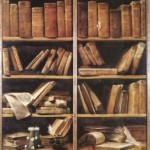 This is a neat idea that more communities should consider. What better way to show residents how their tax dollars work than a family tree search Sunday. This story from the Scarborough Evening News reports that residents of Scarborough will be welcome to participate in a unique event every Sunday. It is a day set aside to help research their family trees. The Council Records Office in North Yorkshire County is taking registrations for a family history “day school” intended to aid beginning genealogists in their initial research.
This is a neat idea that more communities should consider. What better way to show residents how their tax dollars work than a family tree search Sunday. This story from the Scarborough Evening News reports that residents of Scarborough will be welcome to participate in a unique event every Sunday. It is a day set aside to help research their family trees. The Council Records Office in North Yorkshire County is taking registrations for a family history “day school” intended to aid beginning genealogists in their initial research.
The Sunday sessions will provide access to parish and non conformist records as well as give lessons on how to use census and registration records. The study days will be headed by Jackie Depelle, a local history tutor and Records Office staff will be on hand to assist participants.
Read the full article …
Too bad it isn’t a bit closer to home.
…
Where to Next?
…
Free Death Records at Ancestry.com
February 10, 2008 by Chris
Filed under Genealogy Death records, Genealogy Records 101, Public Records
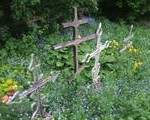 Today Ancestry.com announced a suite of new free death records databases including:
Today Ancestry.com announced a suite of new free death records databases including:
- 1641-1819 Emigrants to Pennsylvania
- 1750-1886 Burials at St. Mary’s Church, Gateshead, Durham, England
- 1844-1884 Missouri State Census Collection
This is in addition to the following databases updated in the past 10 days:
- Beaver County, Pennsylvania Families
- Every name Index to Egle’s Notes and Queries Chiefly Relating to Interior of Pennsylvania
- Early Pennsylvania Land Records
- Early Friends and Families of Upper Bucks
- Colonial & Revolutionary Families of Pennsylvania, Volume III
- Colonial & Revolutionary Families of Pennsylvania, Volume II
- 1903 Edition of the Complete American Armoury and Blue Book
- 1907 Edition of the Complete American Armoury and Blue Book
- The History of Haverhill [Massachusetts]
The folks at Ancestry.com seem to keep at it around the clock, providing us with abundant resources. If you haven’t visited recently, it is worth viewing this amazing site for free death records and other vital genealogy information.
…
Where to Next?
Blank Family Tree with Step-by-Step Instructions
…
Searching Cemetery Monument Foundations
February 9, 2008 by Chris
Filed under Articles, Cemetery Searches, Genealogy Cemetery Searches, Genealogy Records 101
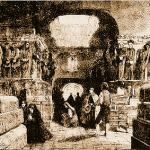 This book will intrigue anyone involved in serious genealogical research, posing a whole new way to uncover family roots and facts through research into cemeteries and their contents. This book has all kinds of great information from funeral art to conducting cemetery surveys. The author, Sharon Debartolo Carmack, covers how to access and interpret death certificates, obituaries, coroner’s records, wills, memorial and prayer cards, funeral home records, and mortality schedules. She also outlines the process of locating individual graves and elusive cemteries.
This book will intrigue anyone involved in serious genealogical research, posing a whole new way to uncover family roots and facts through research into cemeteries and their contents. This book has all kinds of great information from funeral art to conducting cemetery surveys. The author, Sharon Debartolo Carmack, covers how to access and interpret death certificates, obituaries, coroner’s records, wills, memorial and prayer cards, funeral home records, and mortality schedules. She also outlines the process of locating individual graves and elusive cemteries.
You can read more about this guide on Amazon.com:
Your Guide to Cemetery Research
…
Where to Next?
…
You’ve Got your Blank Family Tree Form to Print, What Next?
February 9, 2008 by Chris
Filed under Blank Family Tree, Getting Started in Genealogy, Introduction to Genealogy
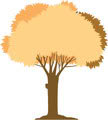 In this article, Mr. David Chandler tells us what we need to do after we’ve downloaded our blank family tree form to print. He walks us through the idea of “audit trails” which will help you move from step to step.
In this article, Mr. David Chandler tells us what we need to do after we’ve downloaded our blank family tree form to print. He walks us through the idea of “audit trails” which will help you move from step to step.
The Family Tree
By: David Chandler
There are numerous genealogy sites out there that feature an assortment of articles on documentation of records for doing your genealogy search. We will look at how genealogy sites and the tools they offer will assist you to carry on a search.
Genealogy sites have plenty of tools that you use to keep records of your searches, but keeping records is not enough. You must know where to search next once you have found that piece of information that you are looking for. Genealogists usually draw conclusions from their records, to continue to dig deeper into the roots of their ancestry, which is often referred to as and audit trail.
An ‘audit trail’ requires that the thought process and analysis be included by documenting sources. Genealogy sites generally offer some software that is capable of analyzing the data and there are services from expert genealogists.
The fees from experts vary from site to site, but they are not always needed unless you get stuck and cannot find the additional information that you are looking for in your search or if you cannot go any further on your own. There are many purposes for an audit trail but one of the main reasons is for subsequent searches to obtain the records that were used and see how the initial researcher came to their conclusions. Keeping records is very important, along with maintaining them in a secure and good condition.
Suggestions for making an audit trail:
- When you make an assumption, clearly state why you came to the conclusion and any other information that could be useful. This can be the on the front page of your record and can be edited at anytime, remember that new information changes the search direction.
- By learning any historical background of the time period and region, will allow you to have a better of idea of what direction may be the next direction to head in. Most genealogy sites offer this information to you for this purpose.
- Learn as much information as you can about your ancestors, such as how they lived, their culture and any other relevant information that will help guide you in your search.
- Cite your sources, as this can lead you back to the information you need, or may add additional information for future searches that are completed.
- Writing notes in detail will make it easier for people who carry on your work in the future. This will allow them to see your thought process.
Make sure that you information is as accurate as possible, do not jump to conclusions. You can make the search nearly effortless, by leaving and audit trail which allows you or others to carry on the search easily.
(This article was written by David Chandler. Please visit some other articles written by Mr. Chandler by clicking on the link which is the author’s name.)
…
Where to Next?
…
Special Programs to Highlight National Archives Records in March
February 8, 2008 by Chris
Filed under Articles, Latest News, Public Records
 Washington, DC. . . In March, the National Archives will feature a series of programs highlighting records from its holdings. All programs are free and open to the public (unless otherwise noted) and will be held in the National Archives Building and at the National Archives at College Park, Maryland The National Archives Building is located on Constitution Avenue, between 7th and 9th Streets, NW, Washington, DC. Visitors to all programs in the National Archives Building should use the Constitution Avenue entrance, except for programs in the Research Center.
Washington, DC. . . In March, the National Archives will feature a series of programs highlighting records from its holdings. All programs are free and open to the public (unless otherwise noted) and will be held in the National Archives Building and at the National Archives at College Park, Maryland The National Archives Building is located on Constitution Avenue, between 7th and 9th Streets, NW, Washington, DC. Visitors to all programs in the National Archives Building should use the Constitution Avenue entrance, except for programs in the Research Center.
For Research Center programs, the public should the Pennsylvania Avenue
entrance, between 7th and 9th Streets, NW. The National Archives at College Park, MD is located at 8601 Adelphi Road. For directions to both locations, see: http://www.archives.gov/dc-metro.
But grandma never carried a gun
Locating Women Using Records Created by the Military Friday, March 7, 10:15 a.m. – 12:30 p.m., Jefferson Room, National Archives Building Marie Varrelman Melchiori, CG, CGL, will provide an overview of records created by the military which will help researchers locate information on the women who were the mothers, wives and sisters of soldiers. Reservations are required, and a fee of $20 is payable by cash or check (payable to NATF) at the door. Call 202-357-5333.
Effective internet genealogy searching
Wednesday, March 12, 10:15 a.m. – 12:15 p.m., Washington Room, National Archives Building Elizabeth Kelley Kerstens, CG, CGL, will provide instruction on how to search the Internet when conducting research. Participants will learn ways to creatively and effectively search the Internet for hidden tidbits to help them progress in their family history research. Reservations are required, and a fee of $20 is payable by cash or check(payable to NATF) at the door. Call 202-357-5333.
Beginning your Irish genealogy research in US sources
Friday, March 14, 10:15 a.m. – 1:15 p.m., Jefferson Room, National Archives Building Elizabeth Kelley Kerstens, CG, CGL, will cover the basics of finding the origin of Irish ancestors using resources available in the United States. She will share strategies for using passenger lists, immigration records, military records, census records, city directories, and other original sources of value in tracking down the origin of Irish immigrants. Reservations are required, and a fee of $20 is payable by cash or check (payable to NATF) at the door. Call 202-357-5333
Footnotes
Tuesday, March 4, 10:00 a.m., Room G-24, National Archives Building Research Center Please use the Pennsylvania Ave. entrance National Archives Librarian Jeffery Hartley will discuss how the National Archives and Footnote.com are working as partners to bring unprecedented access to selections of the vast holdings of the National Archives. He will focus on what is currently available and how to access and use Footnote.com. (This lecture will be repeated at the National Archives at College Park, MD, in Lecture Room B, on Thursday, March 6, at 10 a.m.)
Civil War records at Footnote.com
Tuesday, March 4, 11:00 a.m., Room G-24, National Archives BuildingResearch Center Please use the Pennsylvania Ave. entranceBeau Sharbrough, Vice President of Content for Footnote.com, willdiscuss Civil War records at Footnote.com. (This lecture will berepeated at the National Archives at College Park, MD, in Lecture RoomB, on Thursday, March 6, at 11 a.m.)
Irish history
Thursday, March 13, 11 a.m., Room G-24, National Archives Building Research Center Please use the Pennsylvania Ave. entrance Fintan Mullan, Executive Director of the Ulster Historical Foundation in Belfast, will discuss Irish records and Irish migration to America.
Researching electronic records via the access to archival databases (AAD)
Wednesday, March 19, 2008, 11 a.m., Room G-24, National ArchivesBuilding Research CenterPlease use the Pennsylvania Ave. entrance Archives Specialist Lynn Goodsell will offer an introduction to electronic (“digitally-born”) records of interest to genealogists and how to access the records online via the Access to Archival Databases(AAD) resource. (This lecture will be repeated at the National Archives at College Park, MD, in Lecture Room B, on Thursday, March 20, at11a.m.)
From the records book group
Tuesday, March 18, 2008, 11 a.m. and noon, Room G-24, National Archives Building Research Center – Please use the Pennsylvania Ave. entrance Following a lecture at 11 a.m. on records relating to Gettysburg, the Book Group will discuss These Honored Dead: How the Story of Gettysburg Shaped American Memory, by Thomas A. Desjardin. Please check the Archives Shop (202-357-5271) for book availability and a special discount for participants. NOTE: April’s book selection is All You Need is Love: the Peace Corps and the Spirit of the 1960s, by Elizabeth Cobbs Hoffman
SAVE THE DATE!
National Archives Genealogy Fair The National Archives’ annual Genealogy Fair will take place Wednesday, April 23, from 9:30 a.m. – 4:30 p.m., in the National Archives Building Research Center. This event is free and open to the public.
Both Archives facilities are fully accessible. To request an accommodation (e.g., sign language interpreter) for a public program, please email public.program@nara.gov or call 202-357-5000 at least two weeks prior to the event. To verify the date and times of the programs, the public should call 202-357-5333, or view the Calendar of Events on the web at: http://www.archives.gov/calendar.
…
Where to Next?
Blank Family Tree with Step-by-Step Instructions
…
Bronner Burgess Obituary
February 8, 2008 by Chris
Filed under Articles, Latest News, Public Records
 01/23/08. I am saddened to report on the passing of William Bronner Burgess, age 2, after falling into an indoor swimming pool at home. Bronner is the son of Rick and Sherri Burgess. You may know Rick from The Rick and Bubba Show, where he is co-host. Our thoughts are with the entire Burgess Family during this painful time. Rick and Sherri have three other sons, Blake, Brooks and Brody, and a daughter, Brandi.
01/23/08. I am saddened to report on the passing of William Bronner Burgess, age 2, after falling into an indoor swimming pool at home. Bronner is the son of Rick and Sherri Burgess. You may know Rick from The Rick and Bubba Show, where he is co-host. Our thoughts are with the entire Burgess Family during this painful time. Rick and Sherri have three other sons, Blake, Brooks and Brody, and a daughter, Brandi.
To read the full obituary from The Jacksonville News, click here.
…
Where to Next?
…
